- Home
- About Us
- Nansen Refugee Award
- Past Winners
Past Winners
In photos: The Nansen Refugee Award winners
-
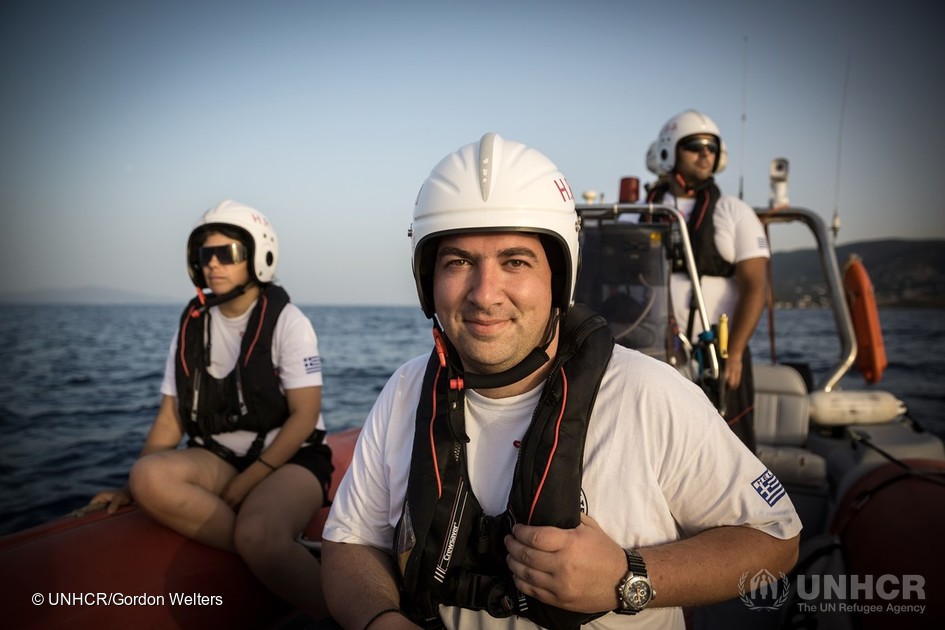 2016 - Konstantinos Mitragas on behalf of the Hellenic Rescue Team and Efi Latsoudi, a human rights activist behind "PIKPA village" on the Greek island of Lesvos, are joint winners of UNHCR's Nansen Award 2016. The award recognizes their tireless efforts to aid refugee arrivals in Greece during 2015. © UNHCR/Gordon Welters
2016 - Konstantinos Mitragas on behalf of the Hellenic Rescue Team and Efi Latsoudi, a human rights activist behind "PIKPA village" on the Greek island of Lesvos, are joint winners of UNHCR's Nansen Award 2016. The award recognizes their tireless efforts to aid refugee arrivals in Greece during 2015. © UNHCR/Gordon Welters -
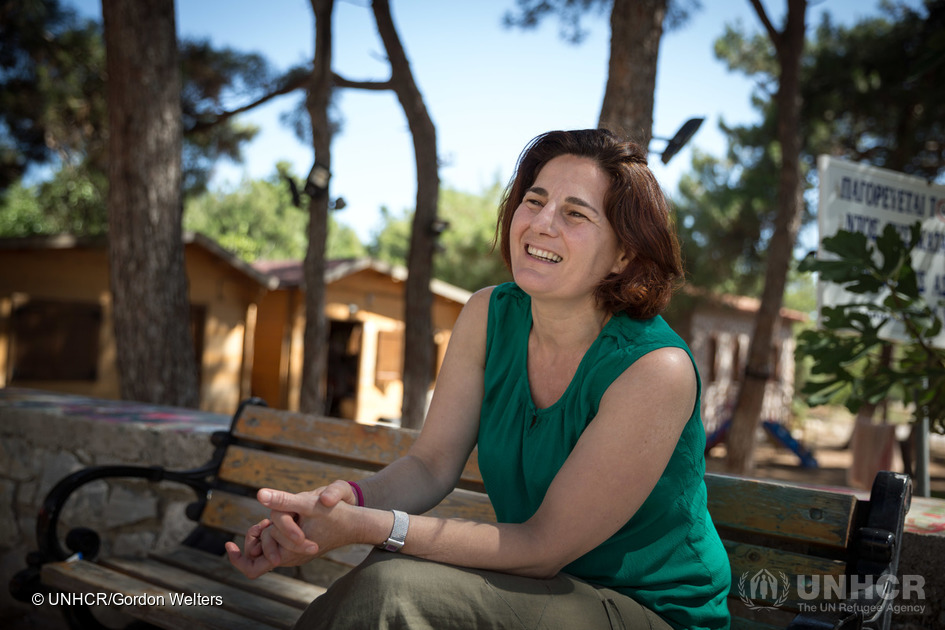 2016 - Efi Latsoudi plays is pictured at "PIKPA village" on the Greek island of Lesvos. Latsoudi is a human rights activist behind PIKPA, where vulnerable refugees such as children, pregnant women and the disabled have been finding sanctuary since 2012. © UNHCR/Gordon Welters
2016 - Efi Latsoudi plays is pictured at "PIKPA village" on the Greek island of Lesvos. Latsoudi is a human rights activist behind PIKPA, where vulnerable refugees such as children, pregnant women and the disabled have been finding sanctuary since 2012. © UNHCR/Gordon Welters -
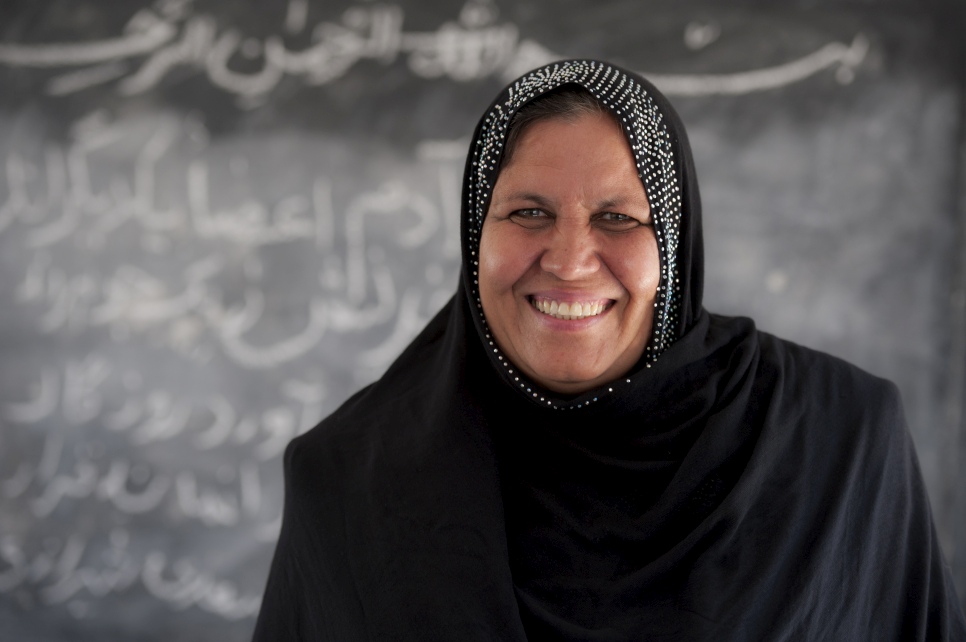 2015 - Aqeela Asifi was awarded for her indefatigable efforts to help refugee girls access education. She has changed the lives of hundreds of young refugees. Aqeela Asifi, an Afghan refugee living in Pakistan, has been named the 2015 winner of UNHCR's Nansen Refugee Award. Asifi has dedicated her adult life to educating refugee girls. Despite minimal resources and significant cultural challenges, hundreds of girls have now passed through her school, equipped with life-long skills and brighter hopes for their futures. © UNHCR/Sebastian Rich
2015 - Aqeela Asifi was awarded for her indefatigable efforts to help refugee girls access education. She has changed the lives of hundreds of young refugees. Aqeela Asifi, an Afghan refugee living in Pakistan, has been named the 2015 winner of UNHCR's Nansen Refugee Award. Asifi has dedicated her adult life to educating refugee girls. Despite minimal resources and significant cultural challenges, hundreds of girls have now passed through her school, equipped with life-long skills and brighter hopes for their futures. © UNHCR/Sebastian Rich -
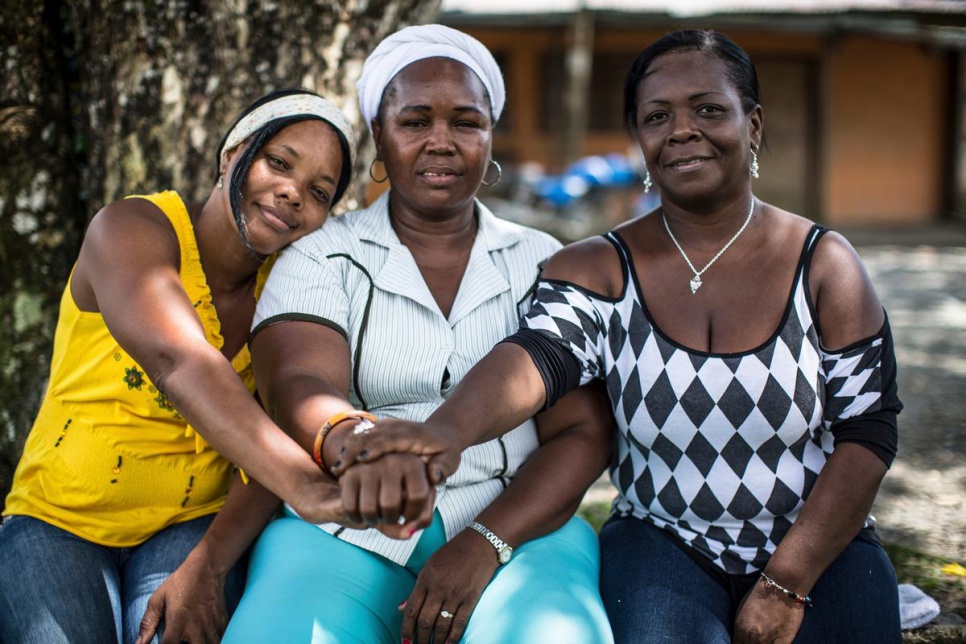 2014 - Butterflies with New Wings Building a Future, is a group of courageous women that work tirelessly to help displaced survivors of sexual abuse reclaim their lives in Buenaventura, one of the most violent cities in Colombia. © UNHCR /J. Arredondo
2014 - Butterflies with New Wings Building a Future, is a group of courageous women that work tirelessly to help displaced survivors of sexual abuse reclaim their lives in Buenaventura, one of the most violent cities in Colombia. © UNHCR /J. Arredondo -
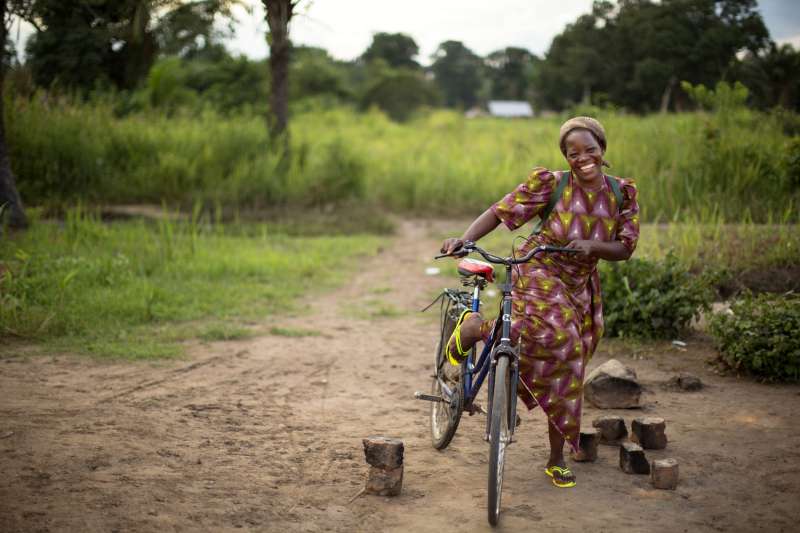 2013 - Sister Angélique Namaika was awarded for her exceptional courage and unwavering support for survivors of brutal violence in Democratic Republic of the Congo (DRC). In this region, many Congolese women and girls have been kidnapped and terrorized in the campaign of terror waged by the Lord's Resistance Army (LRA). Construction on her Nansen project – a cooperative bakery, was completed in 2015. © UNHCR/ B. Sokol
2013 - Sister Angélique Namaika was awarded for her exceptional courage and unwavering support for survivors of brutal violence in Democratic Republic of the Congo (DRC). In this region, many Congolese women and girls have been kidnapped and terrorized in the campaign of terror waged by the Lord's Resistance Army (LRA). Construction on her Nansen project – a cooperative bakery, was completed in 2015. © UNHCR/ B. Sokol -
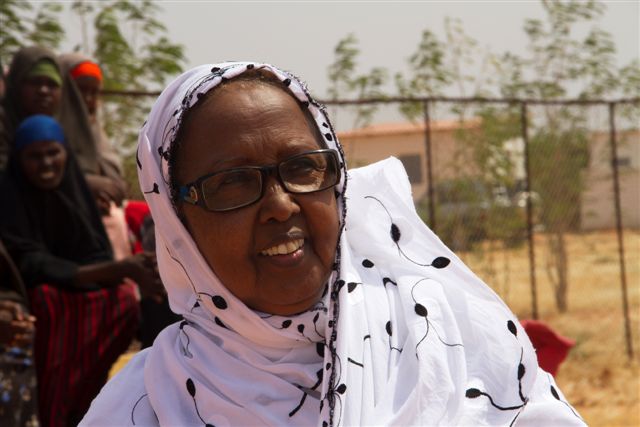 2012 - Hawa Aden Mohamed, widely known as Mama Hawa, was awarded the 2012 Nansen Refugee Award for her extraordinary steps to empower thousands of displaced Somali women and girls, including many who have fled war, persecution or famine. In 2013, she began the construction of the Fridtjof Nansen dormitory in Puntland, Somalia. The dormitory will provide internally displaced youth travelling to Galkayo a safe place to stay while they attend vocational training and sporting activities. © UNHCR/F.Juez
2012 - Hawa Aden Mohamed, widely known as Mama Hawa, was awarded the 2012 Nansen Refugee Award for her extraordinary steps to empower thousands of displaced Somali women and girls, including many who have fled war, persecution or famine. In 2013, she began the construction of the Fridtjof Nansen dormitory in Puntland, Somalia. The dormitory will provide internally displaced youth travelling to Galkayo a safe place to stay while they attend vocational training and sporting activities. © UNHCR/F.Juez -
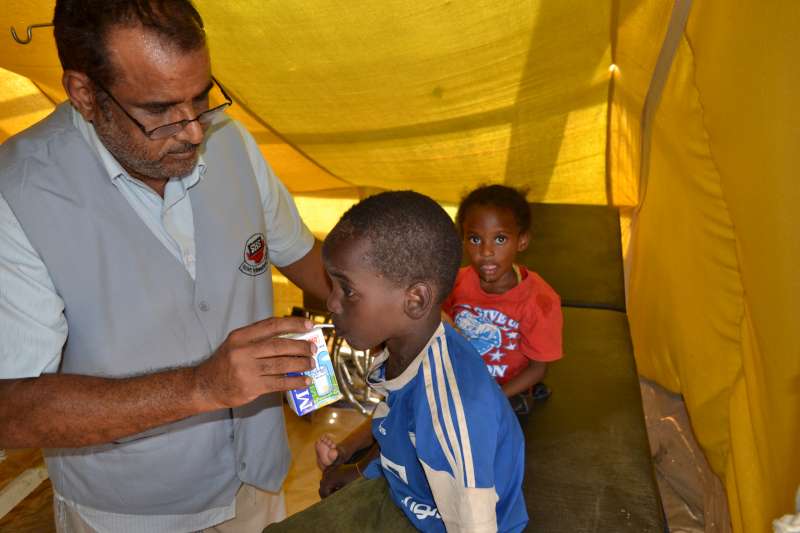 2011 - Nasser Salim Ali Al-Hamairy, founder of the Society for Humanitarian Solidarity (SHS) in Yemen, and his dedicated staff were recognized for their service to refugees who have fled conflict and famine in the Horn of Africa and crossed the treacherous Gulf of Aden. SHS staff worked around the clock to monitor about a third of Yemen's 2,000 kilometre-long coastline, pick up survivors, provide emergency care and, all too often, bury those who die en route. With the prize money of the 2011 Nansen Refugee Award, SHS inaugurated the "Nansen" primary school in the Kharaz Refugee Camp in Yemen. In this way, SHS is helping refugee boys and girls - who remain at the heart of any society - to live in dignity and take hold of their futures once they leave the refugee camp space. © SHS/A.S.Hussein
2011 - Nasser Salim Ali Al-Hamairy, founder of the Society for Humanitarian Solidarity (SHS) in Yemen, and his dedicated staff were recognized for their service to refugees who have fled conflict and famine in the Horn of Africa and crossed the treacherous Gulf of Aden. SHS staff worked around the clock to monitor about a third of Yemen's 2,000 kilometre-long coastline, pick up survivors, provide emergency care and, all too often, bury those who die en route. With the prize money of the 2011 Nansen Refugee Award, SHS inaugurated the "Nansen" primary school in the Kharaz Refugee Camp in Yemen. In this way, SHS is helping refugee boys and girls - who remain at the heart of any society - to live in dignity and take hold of their futures once they leave the refugee camp space. © SHS/A.S.Hussein -
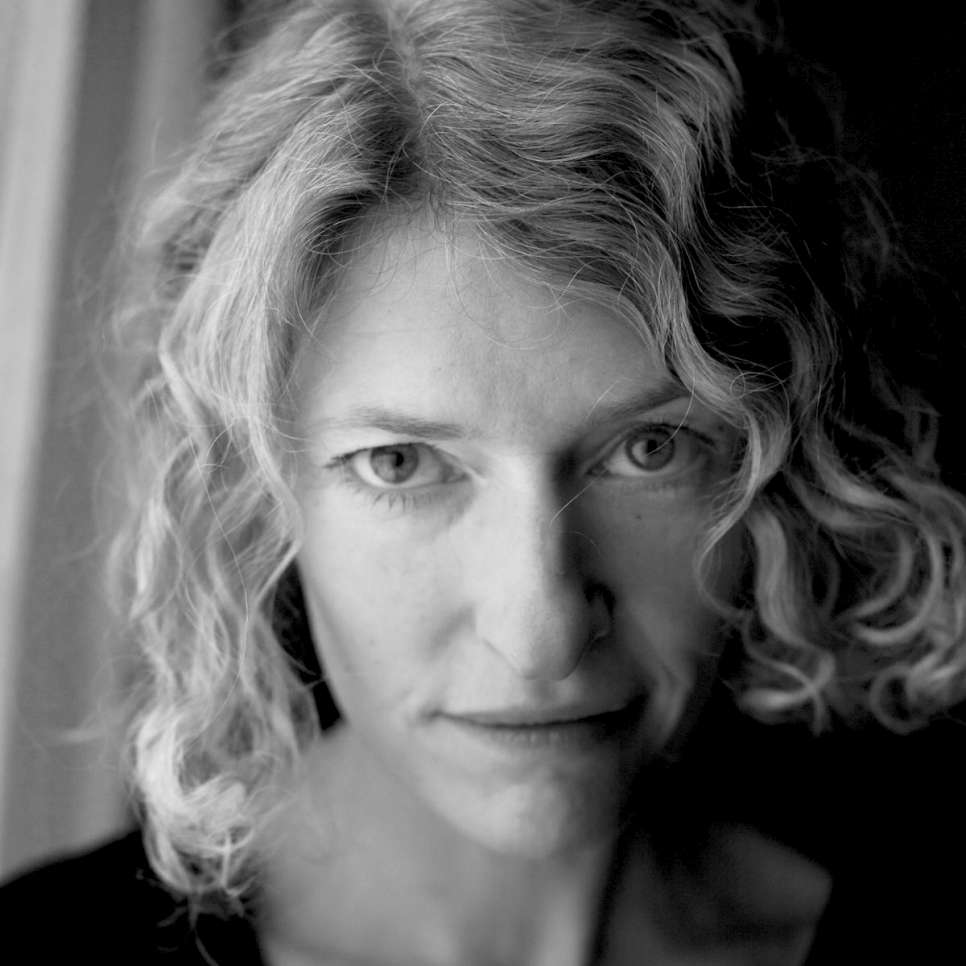 2010 - British photojournalist Alixandra Fazzina received the Nansen Medal for her dedication to documenting and publicizing the consequences of war. Over a decade, Fazzina travelled around the world to portray the individual stories of uprooted people. The Nansen committee praised, in particular, her coverage of Somali refugees making the hazardous sea journey across the Gulf of Aden to Yemen; landmine victims in Kosovo; civilians stranded behind enemy lines in Angola; rape as a weapon of war in Sierra Leone; the abuse of children by militias in the Democratic Republic of the Congo and Uganda; and refugee situations in Afghanistan and Pakistan. © E. Diaz
2010 - British photojournalist Alixandra Fazzina received the Nansen Medal for her dedication to documenting and publicizing the consequences of war. Over a decade, Fazzina travelled around the world to portray the individual stories of uprooted people. The Nansen committee praised, in particular, her coverage of Somali refugees making the hazardous sea journey across the Gulf of Aden to Yemen; landmine victims in Kosovo; civilians stranded behind enemy lines in Angola; rape as a weapon of war in Sierra Leone; the abuse of children by militias in the Democratic Republic of the Congo and Uganda; and refugee situations in Afghanistan and Pakistan. © E. Diaz -
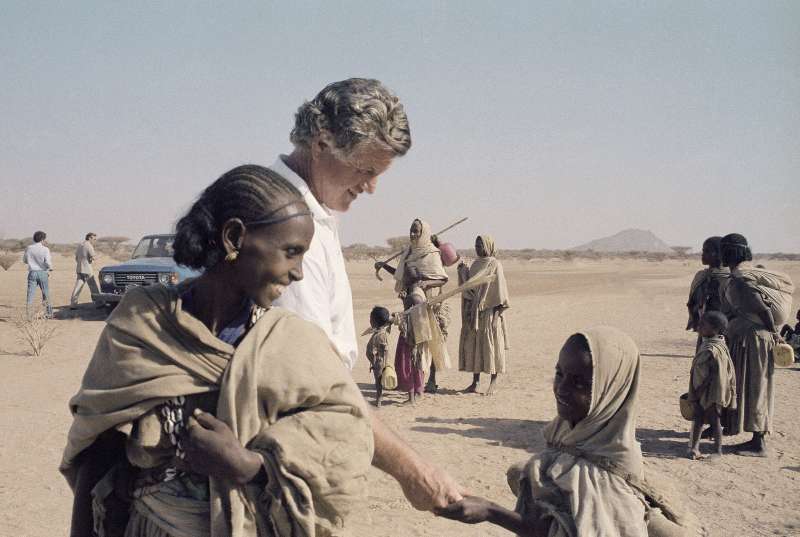 2009 - The late Senator Edward Kennedy was awarded the Nansen in 2009 in recognition of his achievements as an unparalleled champion of refugee protection and assistance for more than 45 years. From his election to the US Senate in 1962, Senator Kennedy's work in establishing US refugee admissions, resettlement and asylum programmes directly helped millions of persecuted individuals to find protection and start new lives in the United States. He was the chief sponsor of more than 70 refugee related legislative measures and was instrumental in codifying international refugee obligations into US law. © AP Photo/Robert Dear
2009 - The late Senator Edward Kennedy was awarded the Nansen in 2009 in recognition of his achievements as an unparalleled champion of refugee protection and assistance for more than 45 years. From his election to the US Senate in 1962, Senator Kennedy's work in establishing US refugee admissions, resettlement and asylum programmes directly helped millions of persecuted individuals to find protection and start new lives in the United States. He was the chief sponsor of more than 70 refugee related legislative measures and was instrumental in codifying international refugee obligations into US law. © AP Photo/Robert Dear -
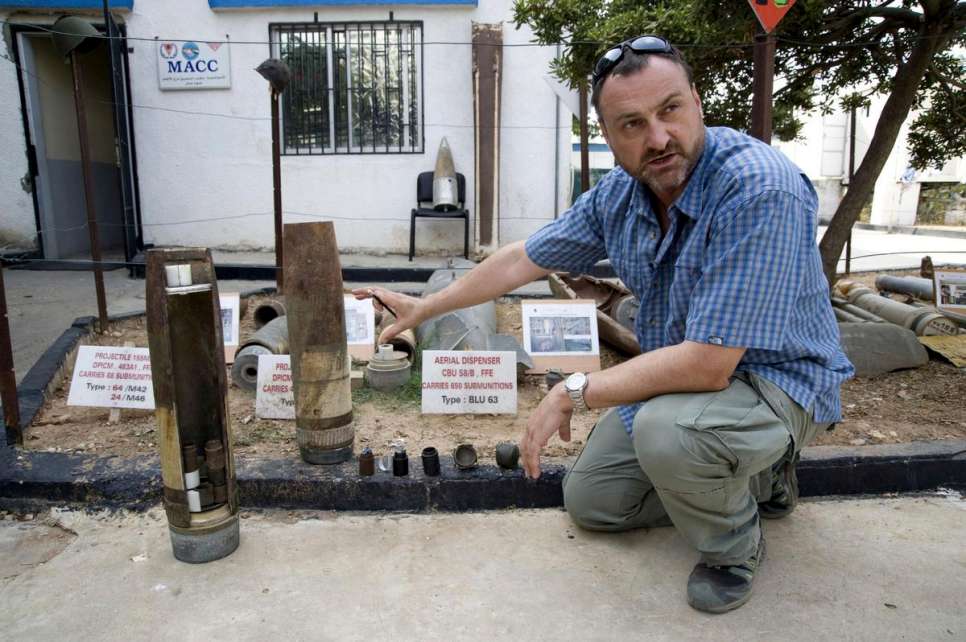 2008 - Former British soldier Chris Clark and the 990 local and international staff of the United Nations Mine Action Programme in southern Lebanon, for their courageous work in removing tonnes of deadly munitions that had prevented the safe return home of almost 1 million Lebanese civilians displaced during Israel's short conflict with the Hezbollah militia. Clark and the team detected and destroyed large quantities of unexploded ordnance and tens of thousands of mines, including cluster bomblets. Their work allowed people to return home and humanitarian agencies like UNHCR to operate. © UNHCR/ P. Taggart
2008 - Former British soldier Chris Clark and the 990 local and international staff of the United Nations Mine Action Programme in southern Lebanon, for their courageous work in removing tonnes of deadly munitions that had prevented the safe return home of almost 1 million Lebanese civilians displaced during Israel's short conflict with the Hezbollah militia. Clark and the team detected and destroyed large quantities of unexploded ordnance and tens of thousands of mines, including cluster bomblets. Their work allowed people to return home and humanitarian agencies like UNHCR to operate. © UNHCR/ P. Taggart -
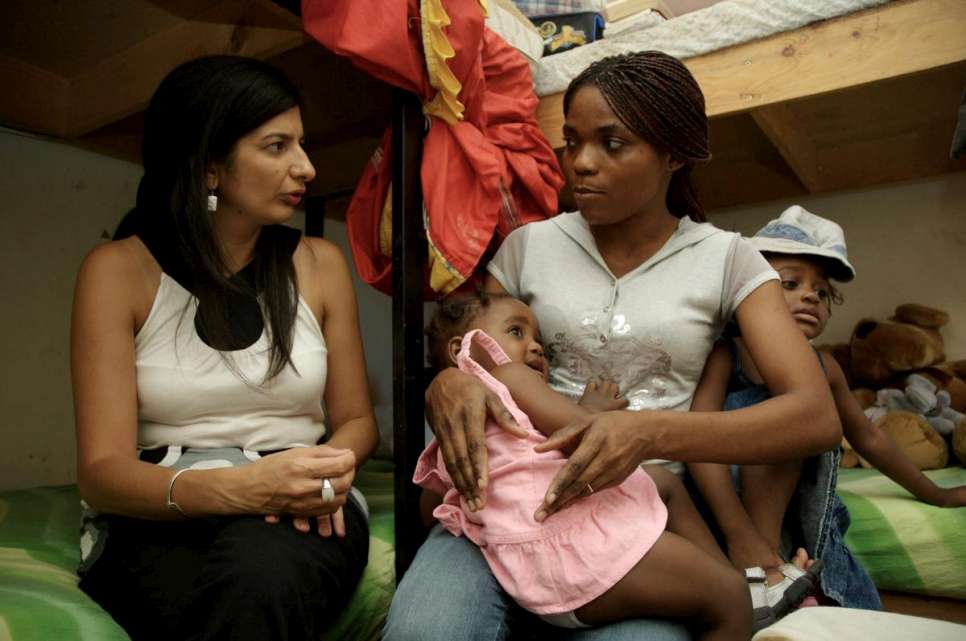 2007 - A lawyer from Malta, Katrine Camilleri was recognized for her work with the Jesuit Refugee Service (JRS). The Nansen Committee praised her exceptional dedication to the refugee cause and her outstanding contribution in protection and assistance to refugees and for lobbying on their behalf despite threats and personal risk. © UNHCR/ A. Pace
2007 - A lawyer from Malta, Katrine Camilleri was recognized for her work with the Jesuit Refugee Service (JRS). The Nansen Committee praised her exceptional dedication to the refugee cause and her outstanding contribution in protection and assistance to refugees and for lobbying on their behalf despite threats and personal risk. © UNHCR/ A. Pace -
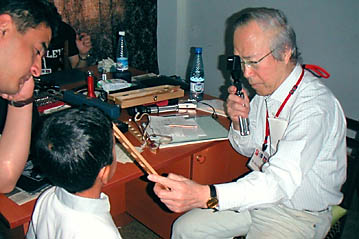 2006 - Japanese optometrist Akio Kanai received the Nansen Medal for giving the gift of clear vision to tens of thousands of refugees around the world. He provided free eyesight tests and handed out more than 100,000 pairs of spectacles to forcibly displaced people. Kanai, head of Fuji Optical, started his humanitarian work in 1983 in Thailand with Indo-Chinese refugees, many of whom had lost their spectacles while fleeing their homes. © FujiOptical Co Ltd
2006 - Japanese optometrist Akio Kanai received the Nansen Medal for giving the gift of clear vision to tens of thousands of refugees around the world. He provided free eyesight tests and handed out more than 100,000 pairs of spectacles to forcibly displaced people. Kanai, head of Fuji Optical, started his humanitarian work in 1983 in Thailand with Indo-Chinese refugees, many of whom had lost their spectacles while fleeing their homes. © FujiOptical Co Ltd -
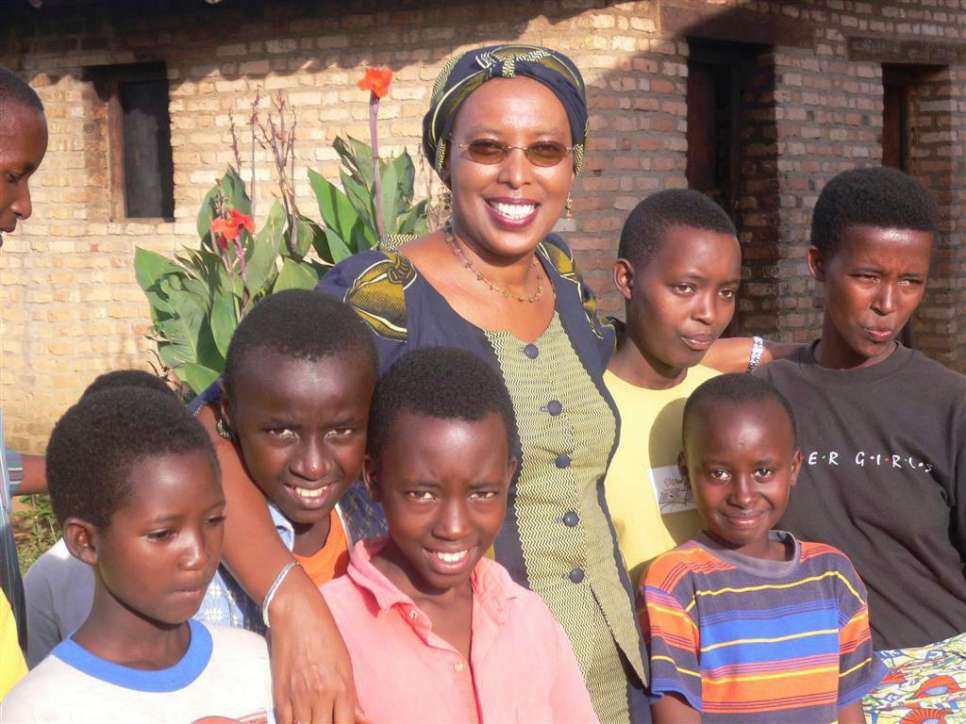 2005 - Marguerite Barankitse, dubbed the "Angel of Burundi," for her tireless efforts on behalf of children affected by war, poverty and disease. Through her work with her organization, Maison Shalom, Barankitse sent a message of hope for the future. The Burundian Tutsi and her team ran four "children's villages" in Burundi as well as a centre for orphans and other vulnerable children in Bujumbura. She said her work was inspired by one goal: peace. © UNHCR
2005 - Marguerite Barankitse, dubbed the "Angel of Burundi," for her tireless efforts on behalf of children affected by war, poverty and disease. Through her work with her organization, Maison Shalom, Barankitse sent a message of hope for the future. The Burundian Tutsi and her team ran four "children's villages" in Burundi as well as a centre for orphans and other vulnerable children in Bujumbura. She said her work was inspired by one goal: peace. © UNHCR -
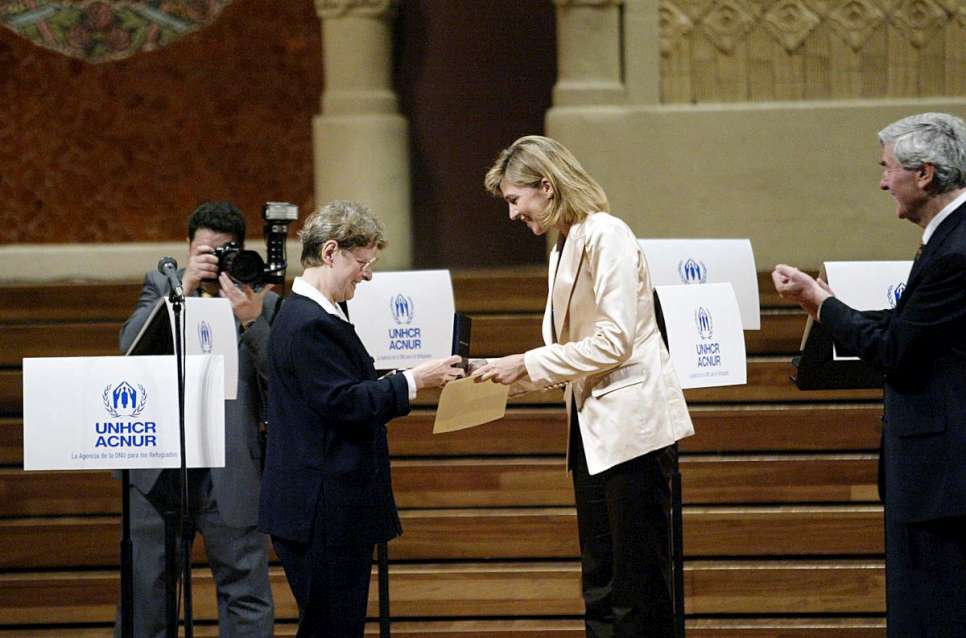 2004 - Russia's Memorial Human Rights Centre received the Nansen for helping tens of thousands of refugees and internally displaced people across the Russian Federation. The Nansen Committee was particularly impressed with the wide range of services carried out by Memorial on behalf of forced migrants and internally displaced people as well as refugees from as far afield as Africa, the Middle East and Asia. Memorial emerged during the former Soviet Union's "perestroika," or restructuring period of the 1980s. © UNHCR/ R. Moreno
2004 - Russia's Memorial Human Rights Centre received the Nansen for helping tens of thousands of refugees and internally displaced people across the Russian Federation. The Nansen Committee was particularly impressed with the wide range of services carried out by Memorial on behalf of forced migrants and internally displaced people as well as refugees from as far afield as Africa, the Middle East and Asia. Memorial emerged during the former Soviet Union's "perestroika," or restructuring period of the 1980s. © UNHCR/ R. Moreno -
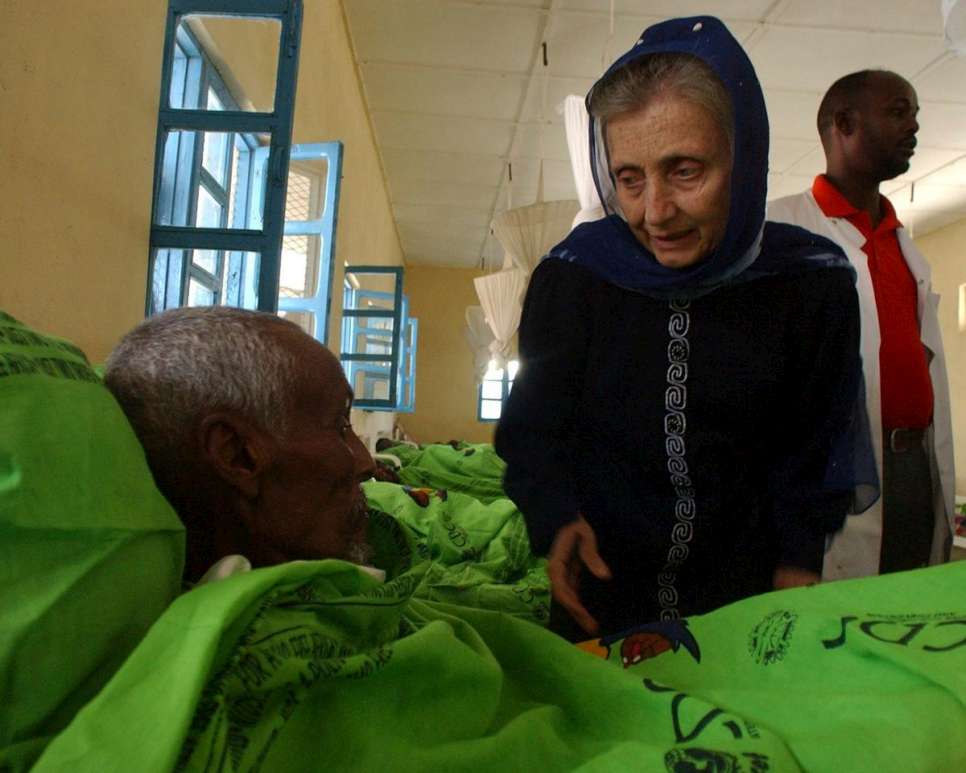 Annalena Tonelli received the Nansen Award for her commitment to refugees in the Horn of Africa. The 60-year-old Italian lawyer initiated programmes to tackle tuberculosis in Kenya and Somalia, worked in HIV/AIDS prevention and control, campaigned for the eradication of female genital mutilation in Africa and ran a school for hearing-impaired children. She was murdered in October 2003 at a TB hospital she set up in Somaliland. © UNHCR/E. Parsons
Annalena Tonelli received the Nansen Award for her commitment to refugees in the Horn of Africa. The 60-year-old Italian lawyer initiated programmes to tackle tuberculosis in Kenya and Somalia, worked in HIV/AIDS prevention and control, campaigned for the eradication of female genital mutilation in Africa and ran a school for hearing-impaired children. She was murdered in October 2003 at a TB hospital she set up in Somaliland. © UNHCR/E. Parsons -
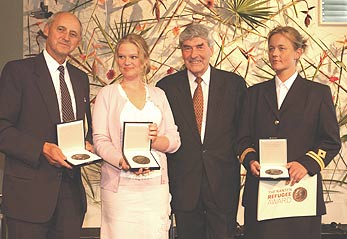 Captain Arne Rinnan and the crew and owners of the Norwegian container ship, MV Tampa, for demonstrating courage and a unique degree of commitment to refugee protection. Capt. Rinnan was in charge of the Tampa when it rescued 438 boat people in the Indian Ocean on August 26, 2001. Despite the risk of substantial delays and a large financial loss to the company, the huge container ship - unsuitable to carry a large number of passengers - altered its course to rescue the asylum-seekers. © UNHCR/S.Hopper
Captain Arne Rinnan and the crew and owners of the Norwegian container ship, MV Tampa, for demonstrating courage and a unique degree of commitment to refugee protection. Capt. Rinnan was in charge of the Tampa when it rescued 438 boat people in the Indian Ocean on August 26, 2001. Despite the risk of substantial delays and a large financial loss to the company, the huge container ship - unsuitable to carry a large number of passengers - altered its course to rescue the asylum-seekers. © UNHCR/S.Hopper -
 2001 - Luciano Pavarotti, in recognition of his efforts to give visibility to the refugee cause and to help raise funds for refugees projects. The 2001 "Pavarotti and Friends" concert and related activities raised awareness about Afghan refugees and the conditions they were living in. Profits from the event went towards funding various projects benefitting Afghan refugee children in Pakistan. Pavarotti continued to support UNHCR until his death in 2007. © D.Venturelli
2001 - Luciano Pavarotti, in recognition of his efforts to give visibility to the refugee cause and to help raise funds for refugees projects. The 2001 "Pavarotti and Friends" concert and related activities raised awareness about Afghan refugees and the conditions they were living in. Profits from the event went towards funding various projects benefitting Afghan refugee children in Pakistan. Pavarotti continued to support UNHCR until his death in 2007. © D.Venturelli -
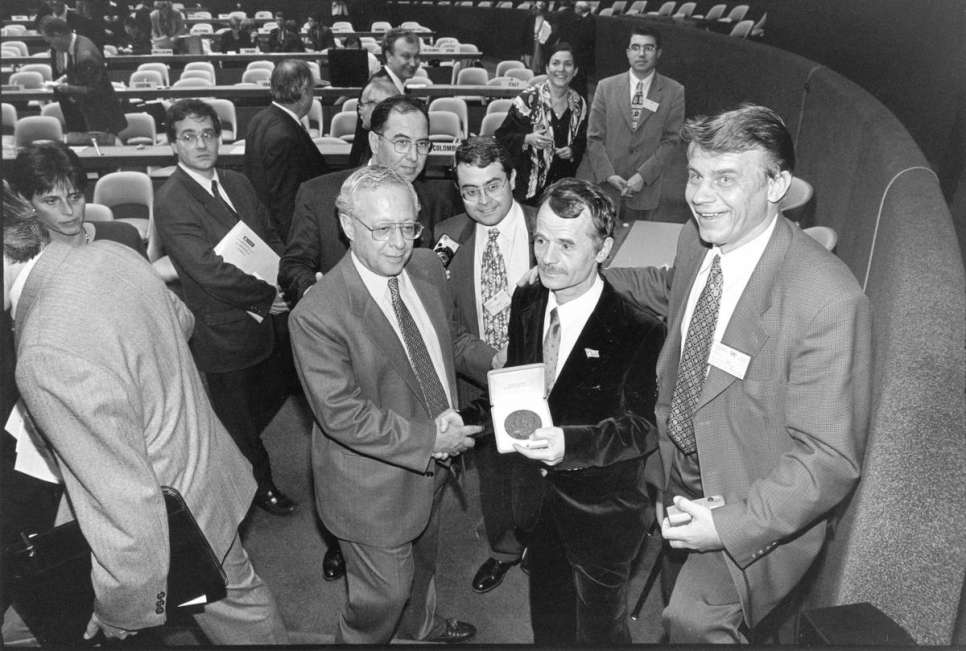 1998 - Mustafa Dzhemilev, received the Nansen Medal in recognition of his outstanding efforts to help Crimean Tartars reintegrate in their native Ukraine. As President of the Association of Crimean Tartars and a member of the Ukrainian parliament, Dzhemilev worked tirelessly with UNHCR to help tens of thousands of Tartars recover their Ukrainian citizenship and their basic rights. © UNHCR/ A. Hollmann
1998 - Mustafa Dzhemilev, received the Nansen Medal in recognition of his outstanding efforts to help Crimean Tartars reintegrate in their native Ukraine. As President of the Association of Crimean Tartars and a member of the Ukrainian parliament, Dzhemilev worked tirelessly with UNHCR to help tens of thousands of Tartars recover their Ukrainian citizenship and their basic rights. © UNHCR/ A. Hollmann -
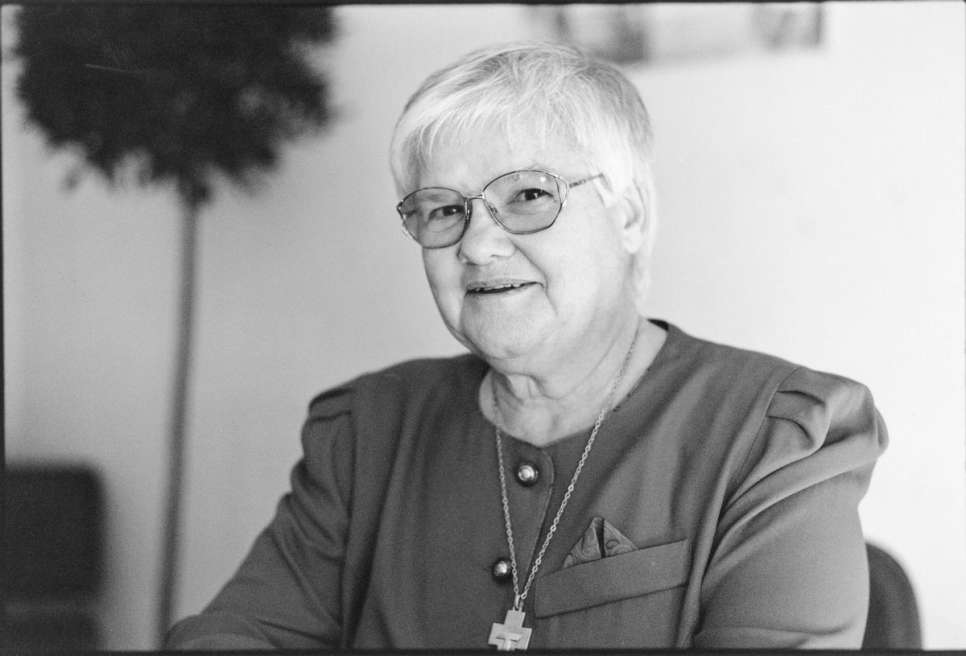 1997 - Sister Joannes Klas, a member of the Sisters of Saint Francis, for her work on behalf of Guatemalan refugees. She went to work in El Tesoro camp in Honduras in 1982, after almost three decades of teaching in primary and secondary schools in the United States. In 1991, she was asked by refugees to go back with them to the Yalpemech area of Guatemala, where she became involved in programmes to improve the lives of the returnees. © UNHCR/ A. Hollmann
1997 - Sister Joannes Klas, a member of the Sisters of Saint Francis, for her work on behalf of Guatemalan refugees. She went to work in El Tesoro camp in Honduras in 1982, after almost three decades of teaching in primary and secondary schools in the United States. In 1991, she was asked by refugees to go back with them to the Yalpemech area of Guatemala, where she became involved in programmes to improve the lives of the returnees. © UNHCR/ A. Hollmann -
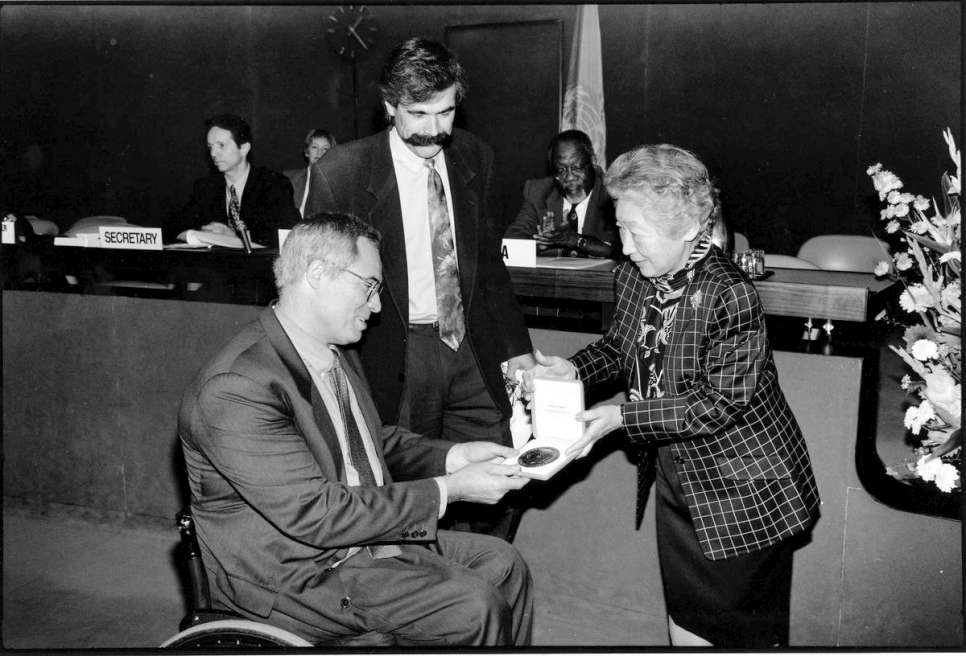 1996 - Handicap International, in recognition of the organization's innovative contributions toward alleviating the suffering of anti-personnel mine victims by providing low cost artificial limbs to more than 150,000 amputees around the world, many of them refugees, internally displaced people or returnees. The Nansen Committee also recognized Handicap International's advocacy work to ban the production, sale and use of anti-personnel mines. © UNHCR/ A. Hollmann
1996 - Handicap International, in recognition of the organization's innovative contributions toward alleviating the suffering of anti-personnel mine victims by providing low cost artificial limbs to more than 150,000 amputees around the world, many of them refugees, internally displaced people or returnees. The Nansen Committee also recognized Handicap International's advocacy work to ban the production, sale and use of anti-personnel mines. © UNHCR/ A. Hollmann -
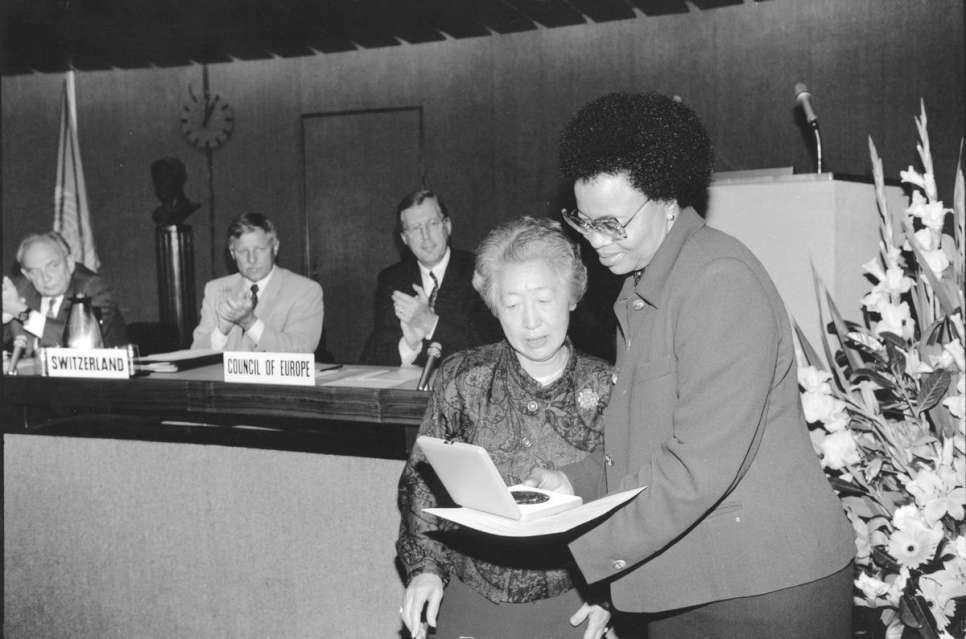 1995 - Graça Machel, a strong voice for peace and reconciliation in her native Mozambique, she was recognized for her long-term humanitarian work, especially on behalf of refugee children. Machel chaired the National Organization of Children and headed the Foundation of Community Development. Machel's first husband, President Samora Machel, died in a plane crash in 1986. She married former South African President Nelson Mandela in 1998. © UNHCR/ A. Hollmann
1995 - Graça Machel, a strong voice for peace and reconciliation in her native Mozambique, she was recognized for her long-term humanitarian work, especially on behalf of refugee children. Machel chaired the National Organization of Children and headed the Foundation of Community Development. Machel's first husband, President Samora Machel, died in a plane crash in 1986. She married former South African President Nelson Mandela in 1998. © UNHCR/ A. Hollmann -
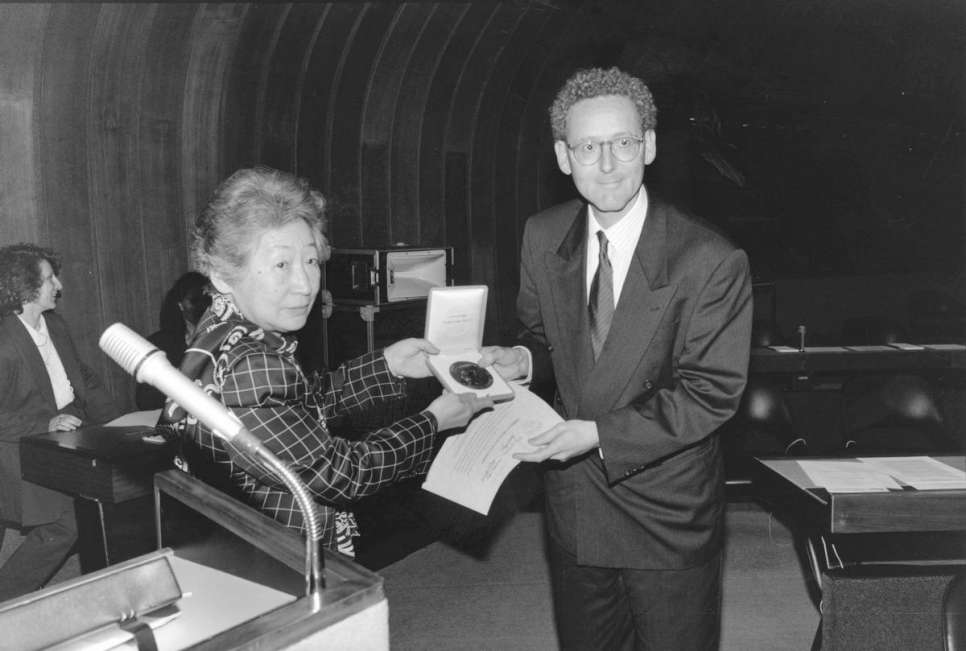 1993 - Médecins Sans Frontières has made a name for its efficiency and dedication to the alleviation of human suffering as well as for the positions it adopts on key issues of international concern. As a medical humanitarian organization, MSF has always defended the fundamental right of victims of war and oppression to receive protection and assistance. In Africa, Asia, Latin America and Europe, MSF doctors and nurses regularly and without hesitation risk their lives to save others, including the forcibly displaced. © UNHCR/ A. Hollmann
1993 - Médecins Sans Frontières has made a name for its efficiency and dedication to the alleviation of human suffering as well as for the positions it adopts on key issues of international concern. As a medical humanitarian organization, MSF has always defended the fundamental right of victims of war and oppression to receive protection and assistance. In Africa, Asia, Latin America and Europe, MSF doctors and nurses regularly and without hesitation risk their lives to save others, including the forcibly displaced. © UNHCR/ A. Hollmann -
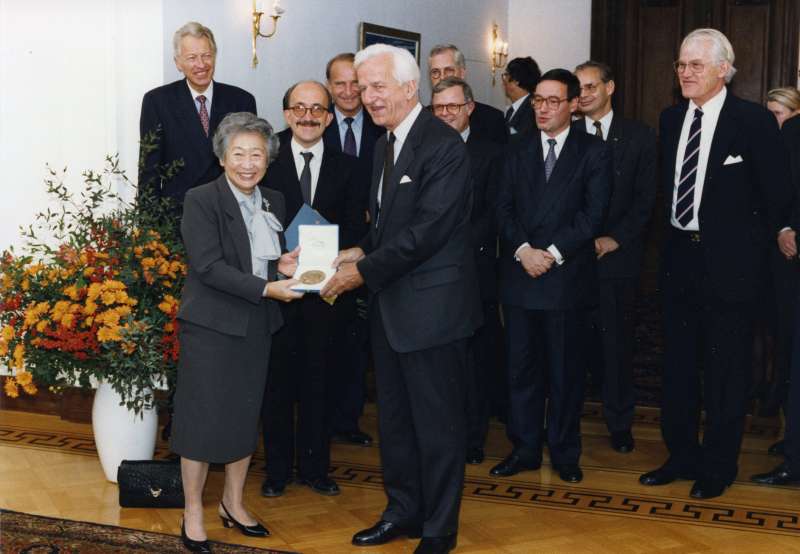 1992 - Richard von Weizsäcker, as President of the Federal Republic of Germany, sought to sensitize the German people to the causes underlying forced population displacement. He strived to make an affluent nation aware of its role and responsibility in alleviating the plight of the distressed and the dispossessed around the globe. He condemned attacks on asylum centres and demonstrated his solidarity with the victims of this violence. Weizsäcker also underlined the threat which xenophobia posed to the foundations of democratic society. © Eduard N. Fiegel
1992 - Richard von Weizsäcker, as President of the Federal Republic of Germany, sought to sensitize the German people to the causes underlying forced population displacement. He strived to make an affluent nation aware of its role and responsibility in alleviating the plight of the distressed and the dispossessed around the globe. He condemned attacks on asylum centres and demonstrated his solidarity with the victims of this violence. Weizsäcker also underlined the threat which xenophobia posed to the foundations of democratic society. © Eduard N. Fiegel -
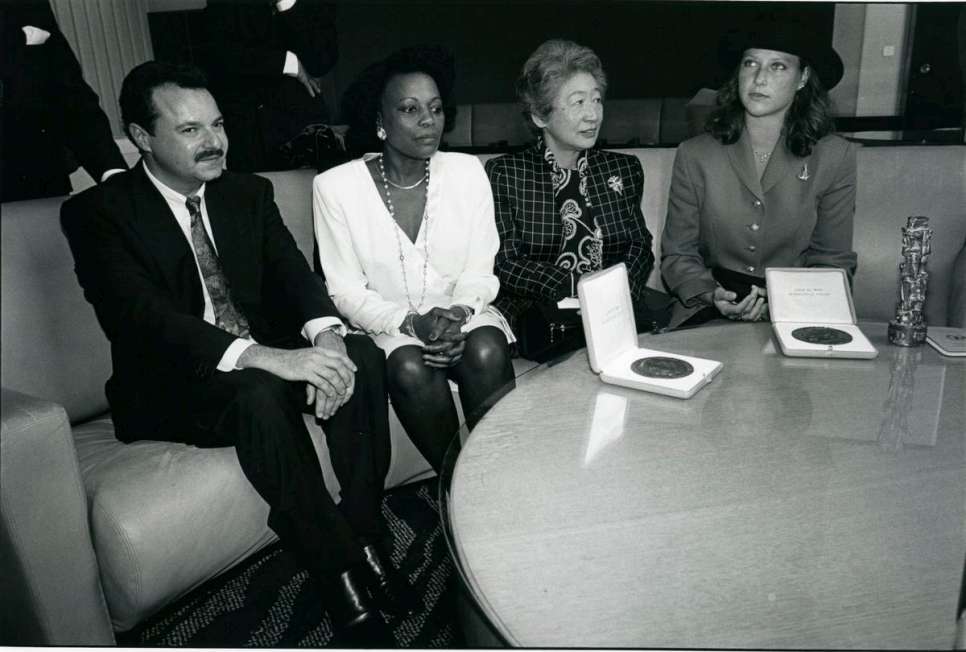 1991 - Libertina Appolus Amathila and Paul Weis. After fleeing her native Namibia in 1962, Dr. Libertina Amathila studied medicine in Warsaw, London and Stockholm. She provided medical care in refugee settlements for nearly 20 years before she was repatriated by UNHCR in 1989. She was sworn in as Minister of Local Government and Housing on March 21, 1990, the night of Namibian independence. Amathila became Deputy Prime Minister of Namibia in 2005. Paul Weis, a survivor of the Nazi concentration camps, shared the award posthumously. He escaped from Dachau and found asylum in Britain. As UNHCR's first Protection Director, he was called the "founding father of protection." The Vienna-born Weis was a strong advocate for refugees and worked constantly to remind the world of its responsibility towards them. © UNHCR/ A. Hollmann
1991 - Libertina Appolus Amathila and Paul Weis. After fleeing her native Namibia in 1962, Dr. Libertina Amathila studied medicine in Warsaw, London and Stockholm. She provided medical care in refugee settlements for nearly 20 years before she was repatriated by UNHCR in 1989. She was sworn in as Minister of Local Government and Housing on March 21, 1990, the night of Namibian independence. Amathila became Deputy Prime Minister of Namibia in 2005. Paul Weis, a survivor of the Nazi concentration camps, shared the award posthumously. He escaped from Dachau and found asylum in Britain. As UNHCR's first Protection Director, he was called the "founding father of protection." The Vienna-born Weis was a strong advocate for refugees and worked constantly to remind the world of its responsibility towards them. © UNHCR/ A. Hollmann
More than 60 Nansen Refugee Award laureates
The first person to win the Nansen Refugee Award, in 1954, was Eleanor Roosevelt, wife of US President Franklin D. Roosevelt and first chair of the UN Human Rights Commission.
Over the years, more than 60 individuals, groups or organisations have received the Award for their extraordinary service to refugees and outstanding work on behalf of the displaced.
Since 1979, Nansen Laureates started to receive a cash prize of USD 50,000 which has increased over time. In 2017, the winner received USD 150,000. The prize is generously donated by the governments of Norway and Switzerland.
The Nansen Refugee Award monetary prize aims at enabling its annual recipient to pursue a project to assist displaced people, developed in close consultation with UNHCR.
Since 2017, regional runners-up are also recognised for their humanitarian efforts.
